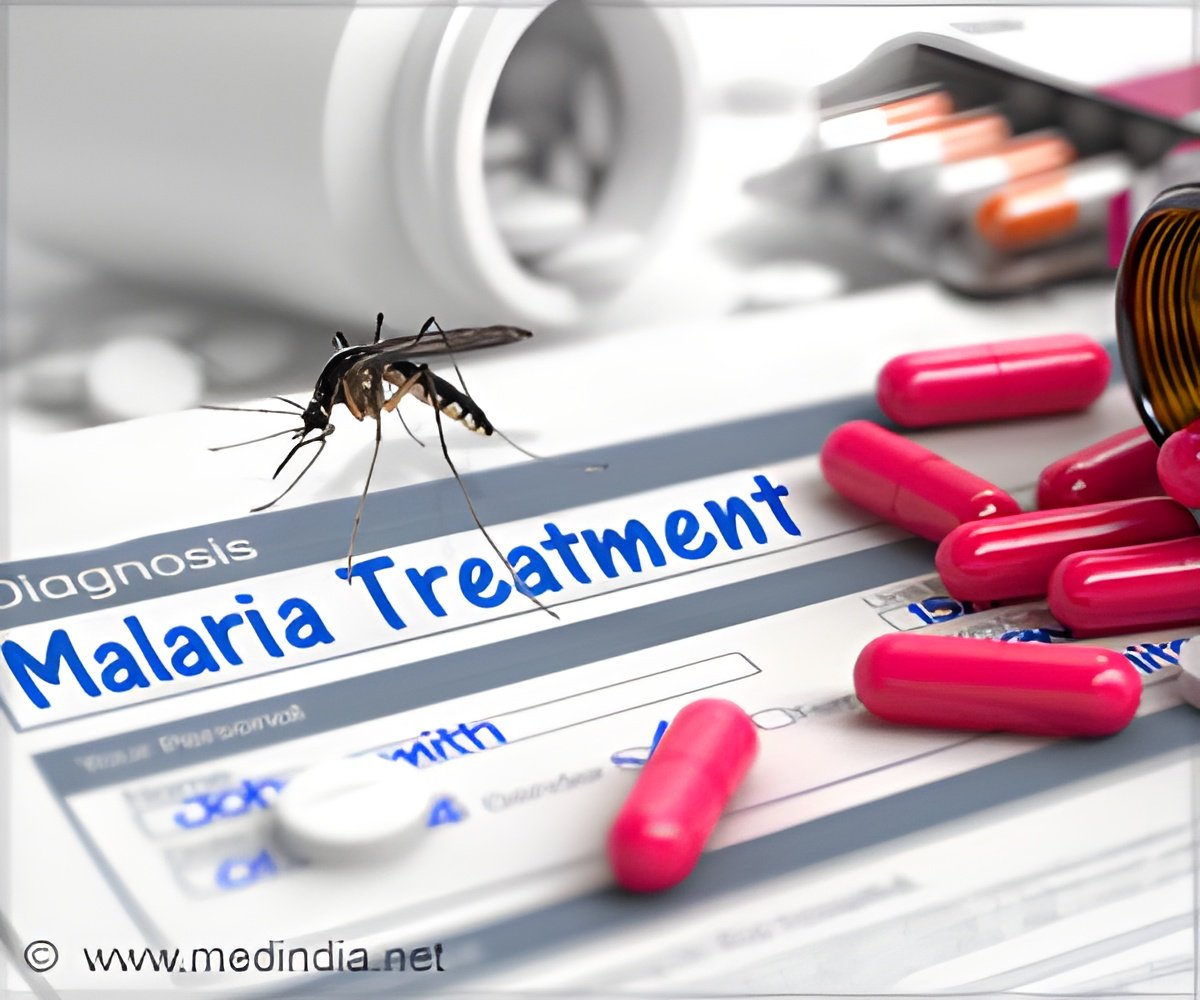
‘Mutations in gene pfgch1 in malaria parasite Plasmodium falciparum increase the resistance to drug Sulfadoxine-pyrimethamine used to prevent malaria in pregnant women and children.’
Read More..Tweet it Now
Every year malaria leads to about 435,000 deaths mainly in young children in sub-Saharan Africa. Despite a long-term global response, the rise of drug-resistant strains of the parasite species that cause malaria hampers the efforts to control the disease.Read More..
Sulfadoxine-pyrimethamine (SP) was initially used as a first-line anti-malaria treatment, but now it is primarily used to prevent infection in pregnant women and children. Due to mutations in two genes in the parasite Plasmodium falciparum resistance to SP has developed. Recently mutations related to resistance were discovered in a third gene, pfgch1.
In order to understand the extent of spread of these mutations, the researchers analyzed genome sequences from 4,134 blood samples collected from 29 countries where malaria is endemic. They found at least ten different versions of pfgch1 in about one quarter of the samples from Southeast Asia and in one third of the samples from Africa, where strains carrying the mutations may be on the rise.
The increase in number of malaria parasites with pfgch1 mutations is of great concern as it enhances resistance to SP and can also encourage the evolution of new resistant strains. This will threaten efforts to use SP to prevent malaria in vulnerable groups. The mutations in pfgch1 can be used to understand where SP can be used effectively, and where rates of drug-resistance are already too high.
Colin Sutherland, an author and co-Director of the LSHTM Malaria Centre, said, "SP is an established drug for malaria prevention and treatment in vulnerable groups such as pregnant women and children. We may have underestimated its vulnerability to parasite resistance, as these new data show."
Advertisement















